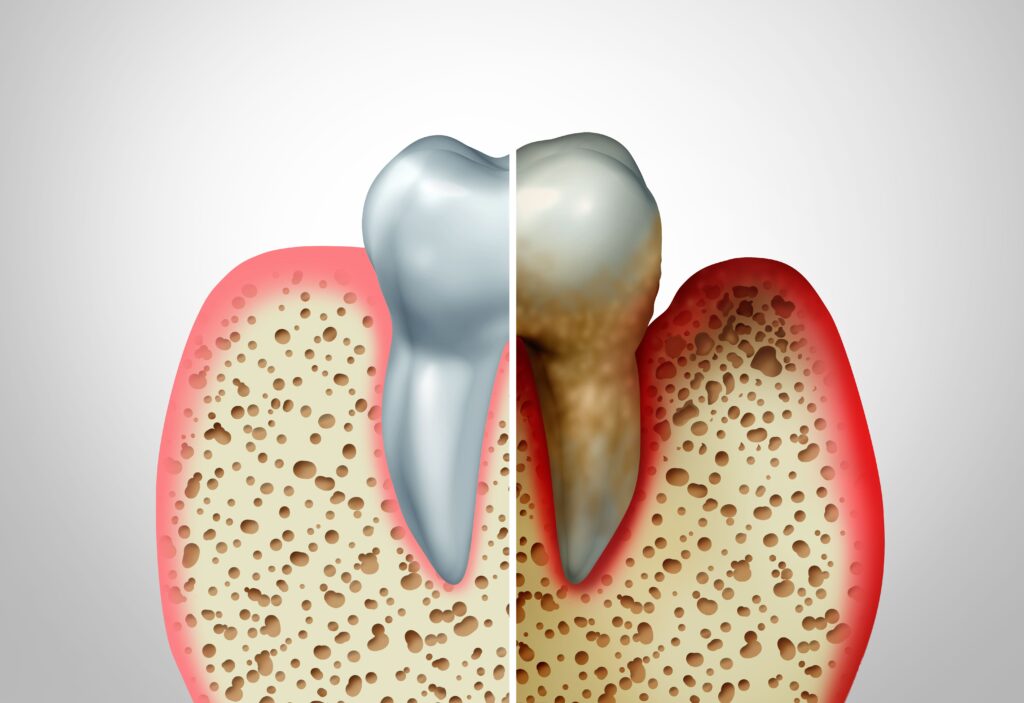
Are you pregnant or planning to become pregnant soon? During pregnancy, it is essential that you don’t neglect your oral health. Pregnant women are much more prone to gum disease due to the hormonal fluctuations that take place during pregnancy. Those hormonal changes cause gum tissue to become inflamed which allows dangerous bacteria to take hold. 40% of pregnant women have some form of periodontal bacteria that could be affecting their overall health and the health of their pregnancy. That number rises in women of color and women with less access to good quality dental care over their lifetime.
Oral Health Problems for Mom During Pregnancy
Oral health should be considered an important part of prenatal care. When periodontal conditions such as gingivitis and periodontal disease are present during pregnancy, they can lead to poor health outcomes for mom. Nearly 60 to 75% of pregnant women have gingivitis. This is an early stage of periodontal disease. The gums become red and swollen from inflammation that may be aggravated by changing hormones during pregnancy. If left untreated, the bone that supports the teeth can be lost, and the gums can become infected. Teeth with little bone support can become loose and may eventually have to be extracted. Periodontitis has also been associated with poor pregnancy outcomes, including preterm birth and low birth weight. How periodontitis may lead to adverse pregnancy outcomes is not yet fully understood but researchers are working hard on this every day.
How Oral Health Conditions Can Affect Your Baby
The Academy of General Dentistry suggests a link between gingivitis and having a preterm or low-birthweight baby. If an expecting mother has gingivitis, it can cause bacteria to enter in the bloodstream and travel to the uterus. The bacteria themselves trigger chemicals that may induce early labor.
Maintaining good oral health is important in combating problems during pregnancy and if it is discovered can be managed with the help of your dentist. Without proper treatment, gingivitis can lead to other health issues that not only affect you, but also your pregnancy. Keep yourself and your child safe by having a consultation with a periodontist before or during your pregnancy. We also recommend that you bring your new baby to a pediatric dentist in their first year of life so they can teach you how to care for their mouth and gums and also to get started on the path to a healthy dental life







